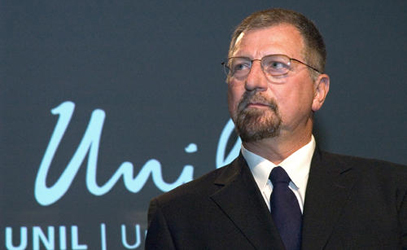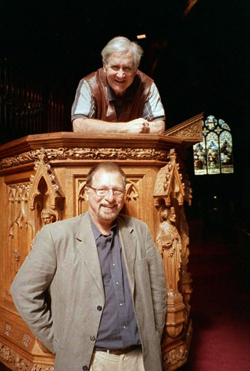
Ivan Strenski
Curriculum Vitae (PDF)  Since 1995, I have been privileged to be the Holstein Family and Community Distinguished Professor of Religious Studies at the University of California, Riverside. My journey to California was indirect but, in a way, inevitable. This journey began when, after two years of a chemistry major at a private religious university, Fairfield University, I changed course and ventured far afield to take my BA (First Class Honors) in philosophy and sociology from a great public university, the University of Toronto. My PhD, as well, was awarded by another public institution, the University of Birmingham (England). There, I worked for three years under the direction of the late Ninian Smart.
Since 1995, I have been privileged to be the Holstein Family and Community Distinguished Professor of Religious Studies at the University of California, Riverside. My journey to California was indirect but, in a way, inevitable. This journey began when, after two years of a chemistry major at a private religious university, Fairfield University, I changed course and ventured far afield to take my BA (First Class Honors) in philosophy and sociology from a great public university, the University of Toronto. My PhD, as well, was awarded by another public institution, the University of Birmingham (England). There, I worked for three years under the direction of the late Ninian Smart.
The dissertation I produced in Birmingham would eventually become the basis of my first book, Four Theories of Myth in Twentieth-Century History (1987). After completing my doctorate, I spent a year as post-doctoral fellow at Yale, working with Stanley Insler and Heinz Bechert in South Asian studies. My first teaching post in religious studies at Connecticut College (New London) was a shock after so many formative years abroad in large public universities. "Conn College" reintroduced me to American academic life right at the height of the cultural and intellectual upheavals of the counter culture. It also taught me the differences between our private and public institutions of higher learning.
 But, as comfortable and privileged as the Connecticut College situation could be, I yearned to be on the frontlines of education in a more open public atmosphere, as I had experienced in both Canada and the UK. Nonetheless, I learned to teach and maneuver in the American academic world, thanks to the experience gleaned from this first post in New London. But, with my heart in public education and in California, my Doktorvater, Ninian Smart was now at UCSB, I strained to jump coasts. In the late 1970's, thanks to a series of fellowships and visiting faculty appointments at Berkeley, UCSB, UCLA and UCR, I was delighted to land in my present position at UCR as Holstein chairholder. Besides teaching and writing in those early years, I founded the North American board of the international journal, Religion, and served as its Editor-in-Chief until 2004. In 2007, I was awarded the honorary decree of Doctor Honoris Causa by the University of Lausanne.
But, as comfortable and privileged as the Connecticut College situation could be, I yearned to be on the frontlines of education in a more open public atmosphere, as I had experienced in both Canada and the UK. Nonetheless, I learned to teach and maneuver in the American academic world, thanks to the experience gleaned from this first post in New London. But, with my heart in public education and in California, my Doktorvater, Ninian Smart was now at UCSB, I strained to jump coasts. In the late 1970's, thanks to a series of fellowships and visiting faculty appointments at Berkeley, UCSB, UCLA and UCR, I was delighted to land in my present position at UCR as Holstein chairholder. Besides teaching and writing in those early years, I founded the North American board of the international journal, Religion, and served as its Editor-in-Chief until 2004. In 2007, I was awarded the honorary decree of Doctor Honoris Causa by the University of Lausanne.
Counting edited volumes and translations of books into other languages, I am the author of fifteen books and over 75 articles. Many attempt to locate various efforts in theoretical thinking, such as about myth, gift or sacrifice, within the larger social, political and religious contexts of modern European life.
Émile Durkheim and the Durkheimian school of sociology of religion have been major foci of my research interests since the middle 1980's. My work can be said to be an attempt to establish the credentials of the Durkheimian tradition, as a foundational for in the study of religion. As embodied in the work of Durkheim, Marcel Mauss, Henri Hubert and others, we find a tradition deserving to be recognized as a firm foundation upon which to construct a modern study of religion—academic, non-confessional, humanistic, cross-cultural, comparative, and imaginative.
Recent works on Durkheim and the Durkheimians include books on Durkheim's Jewishness (1997), the French structural anthropologist, Louis Dumont (2008), and a new edition of Durkheim student, Roger Caillois' "alternative history" novella, Pontius Pilate (2006). Lately, I followed the trail of Durkheimian thought to modern Turkey, where I published a major article on the Durkheimian theoretical foundations of Kemalist corporatism.
Among my latest research enterprises is a new book and several articles on religion and politics. One article, "Sacrifice, Gift and the Social Logic of Muslim 'Human Bombers'" (2004) appeared as the lead article in the journal Terrorism and Political Violence. The book, Why Politics Can't Be Free from Religion: Radical Interrogations of Religion, Power and Politics, attempts a novel reconceptualization and historical genealogy of religion, power and politics in light of present debates provoked by the work of Foucault and Talal Asad. Although I have written much about religion and politics in many particular settings—France, Romania, Germany, Russia—Why Politics Can't Be Free from Religion is my first attempt to write something comprehensive about the topic. Immanent Frame featured it as its book of the week in February 2011.
Since 1996, I have taught an annual interactive, inter-campus video-conference course on theories of religion with UCLA. Recent innovations in teaching include a seminar on religious disputes and arguments, and courses on religion and public discourse, tabu and the sacred. I also host a website on spontaneous religious shrines, www.shrines.ucr.edu
For further details, see my autobiographical essay (1998), "The Rest Is History," in Reflections and Conversations: Essays in the Academic Study of Religion, Jon Stone, ed., (London/New York City: Macmillan/St. Martin's Press, pp. 300-24).